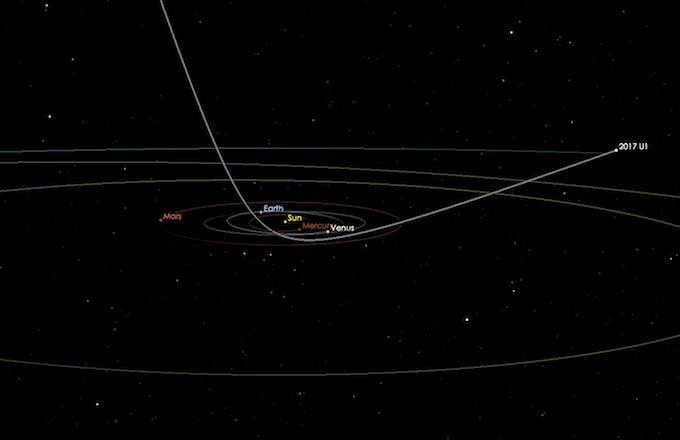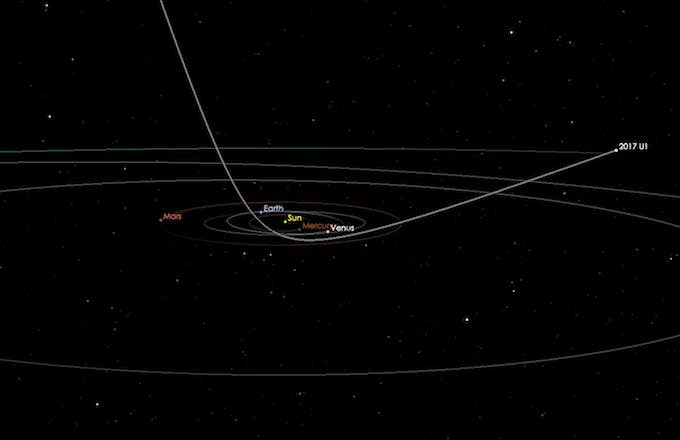
Right now, as you read this, there is a small, fast-moving object rolling around our solar system, and astronomers believe it could be our very first visitor from another solar system.
The object, which was discovered on October 19 by the University of Hawaii Institute for Astronomy, does not behave like other, previously observed space rocks. The implication is that it could be from outside of our solar system. "It would be the first interstellar object to be observed and confirmed by astronomers," NASA said.
"We have been waiting for this day for decades," Paul Chodas, manager of NASA's Center for Near-Earth Object Studies, said in a NASA news release. "It's long been theorized that such objects exist—asteroids or comets moving around between the stars and occasionally passing through our solar system—but this is the first such detection. So far, everything indicates this is likely an interstellar object, but more data would help to confirm it."
For now, astronomers have named the unidentified object A/2017 U1. Experts believe that it’s less than a quarter-mile in diameter and is traveling through space at 15.8 miles per second. The object was about 15 million miles away from Earth on October 14—or about 60 times further away from Earth than the moon.
"Its motion could not be explained using either a normal solar system asteroid or comet orbit," Rob Weryk, the first person to notice the object, said about his discovery. "This object came from outside our solar system."
Scientists think that it’s headed out of our solar system on a trip to the Pegasus constellation.
"This is the most extreme orbit I have ever seen," said Davide Farnocchia, a scientist at the Center for Near-Earth Object Studies. "It is going extremely fast and on such a trajectory that we can say with confidence that this object is on its way out of the solar system and not coming back."

